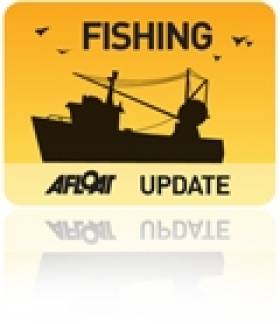Displaying items by tag: Agriculture, Fisheries and Food
Budget 2011: Fisheries Spending Maintained, Cuts to Irish Sports Council
Expenditure on fisheries will be maintained at 2010 levels under the Budget for 2011 announced today.
Minister for Agriculture, Fisheries and Food, Brendan Smith TD, welcomed the protection of expenditure in forestry/bioenergy and fisheries, saying it “reflects the important economic and social contributions that both sectors make to rural and coastal communities throughout the country and the potential that they have to play in the wider economy.”
Elsewhere in the Budget, the rise in the cost of fuel - which will hurt motorists and many boat-owners alike - is accompanied by cuts across Government departments which could affect maritime activities from sport to coastal policing.
Cuts to the Tourism, Culture & Sport will mean reduced finding for the already cash-strapped Irish Sports Council and other sporting bodies, hitting hard on Ireland’s developing sporting talent - particularly in niche maritime and water sports.
No specific cuts to naval spending were outlined, but the Defence budget will be reduced by €28 million in the coming year, which will also see a halt on the acquisition of replacement equipment and maintenance projects.
However this does not apply to the producement of two new naval vessels which “will continue within the reduced allocation for Defence spending”, according to Minister for Defence Tony Killeen TD.
No details were given for any proposed cuts to the Irish Coast Guard and Maritime Safety Directorate, although the Department of Transport which overseas both arms of the Maritime Safety Services will face cuts of €32 million in 2011.
Minister for Agriculture, Fisheries and Food Brendan Smith TD and Minister of State with responsibility for Fisheries, Sean Connick TD, today launched Bord Iascaigh Mhara's (BIM's) new three year strategy (2010 – 2012) and the Irish Seafood National Programme to 2013. The event, which was hosted by BIM at the decentralised Department and BIM offices in Clonakilty, was attended by a large audience from the wider seafood sector.
In his address, Minister Smith welcomed the opportunity to launch these two significant initiatives acknowledging how appropriate it was that they come on the same week as the launch of Food Harvest 2020, which focused on the contribution to be made by the food sector generally in Ireland's economic recovery.
Minister Smith said that both he and Minister Connick attached "a high level of importance on BIM's transformation agenda for the seafood sector and on the associated seafood development measures contained in the Seafood National Programme".
BIM's new strategy document concentrates on avenues to deliver essential developmental services to a seafood industry undergoing rapid and unparalleled change. The Minister commended BIM for clearly setting out challenging targets for themselves for delivery by 2012, including the creation of 600 jobs, an additional €50m in value added seafood sales, and greater differentiation of 40,000 tonnes of Irish seafood products worth €120m.
Minister Smith went on to say "I have consistently stated that the seafood sector, made up as it is of indigenous operators, will have a significant role to play in Ireland's economic recovery. BIM's new strategy is a welcome addition to the suite of harmonised strategies for the seafood sector including Steering a New Course, Sea Change, as well as Food Harvest 2020. It adds to and fully complements the existing strategies and positions Ireland well to maximise the very large opportunities which are presenting themselves in the international seafood markets".
Focusing on the National Programme for the development of the Seafood Sector, Minister of State Connick said "The measures contained in this Programme are the tools to enable the Government and its agencies deliver on the objectives contained in the suite of Seafood focused strategies, and places Ireland in a promising position to capture some of the undoubted opportunities which are emerging in both the international and domestic seafood markets".
Minister Connick said that the proposed investments in the seafood industry constitute a significant vote of confidence by the Government in the sector. He went on to say "The programme published today envisages a significant state investment into the Irish seafood sector from now until the end of 2013. A dedicated allocation of €6.5m is being made available for the remainder of 2010 for the development of the aquaculture and processing sectors." While the programme also facilitates access to other funding from Bord Bia for marketing, from Enterprise Ireland for processing, and from BIM for added value and innovation and fisheries support".
On the launch of the two initiatives Minister Connick said "The launch of these two complementary initiatives to drive forward the development of a modern, high value added, sustainable and expanding seafood sector is an important event in delivering the real opportunities which exist for income generation and enhanced employment in our coastal communities".




























































